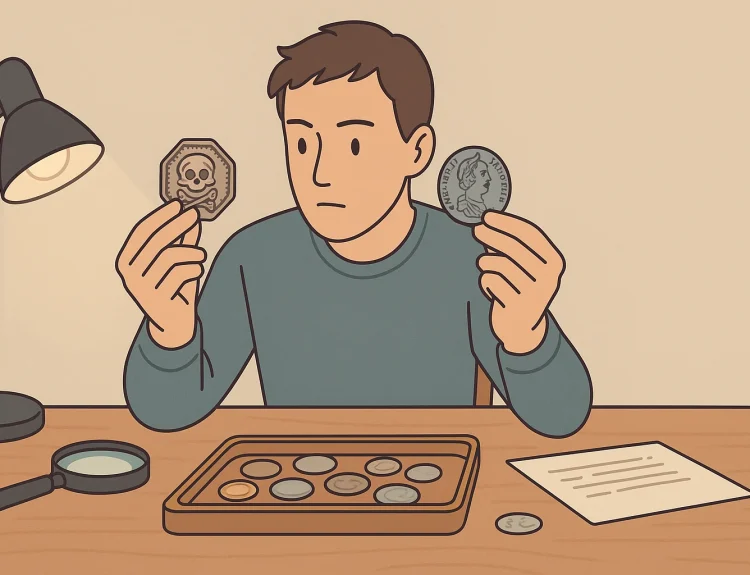We’ve all been there — you walk into a room and immediately forget why you went there, or you meet someone new and their name vanishes seconds later. This kind of short term memory loss is surprisingly common. The good news is that it doesn’t always signal something serious. More often than not, it is a side effect of stress, lack of sleep, or simply trying to juggle too many things at once.
Think of short-term memory as the brain’s sticky note. It is meant to hold onto bits of information just long enough for us to use them — whether that’s dialing a phone number we just heard or remembering what we were about to say in conversation. The trouble starts when that mental sticky note gets smudged or overloaded. That’s when details slip through the cracks.
So, today we would like to break down what short-term memory actually is, why we forget, and what you can do to strengthen it. By the end, you will see that improving memory isn’t only possible — it can even be fun.
What Is Short-Term Memory?
Short-term memory is like a scratchpad for your brain. It temporarily stores information for about 20–30 seconds, giving you just enough time to use it before it either disappears or moves into long-term storage.
Here are a few key things to know:
- Duration: Information lasts only a few seconds unless you actively rehearse it.
- Capacity: According to psychologist George Miller, most people can juggle 7 ± 2 items in short-term memory at once. That’s why long strings of numbers or words are harder to recall.
- Purpose: It helps with everyday tasks like remembering directions, following a recipe, or finishing a sentence.
For example, when you type in a Wi-Fi password after glancing at it, your short-term memory is doing the heavy lifting. Without it, even small tasks would feel impossible.
Interesting fact: Studies show that short-term memory isn’t just about storage but also about processing. It’s the mental workspace where your brain organizes and manipulates information in real time.
Why Do We Forget?
Forgetting is frustrating, but it’s also natural. There are several common reasons why short-term memory slips happen:
| Cause | Why It Affects Memory | Quick Tip to Help |
| Stress and overwork | High cortisol disrupts focus and recall. | Try mindfulness or short breaks. |
| Lack of sleep | Sleep helps the brain “file” memories. | Aim for 7–9 hours nightly. |
| Information overload | Too many distractions overwhelm the brain. | Limit multitasking and reduce screen noise. |
| Age-related changes | Processing speed slows with age. | Stay mentally active with puzzles or learning. |
It’s worth noting that while occasional forgetfulness is normal, chronic issues should be checked by a doctor. For most people, though, simple changes make a big difference.
Practical tip: The next time you’re working on something important, give yourself “mental breaks” every 30–45 minutes. A quick walk, some stretching, or even deep breathing helps clear the clutter so your brain can reset.

When Forgetfulness Deserves Attention
Occasional forgetfulness (like misplacing keys or blanking on a name) is normal, especially in stressful or busy times. But when memory lapses become persistent, disruptive, or interfere with daily life, it’s worth paying attention.
In such cases, talking to a doctor is important, as conditions like depression, thyroid issues, vitamin deficiencies, or even early neurodegenerative diseases can show up as memory problems.
The good news is that in many situations, forgetfulness is linked to lifestyle overload, and simple adjustments — better sleep, brain exercises, balanced nutrition — can make a big difference.
Fascinating Facts About Forgetting
The Forgetting Curve Is Real
In the late 1800s, psychologist Hermann Ebbinghaus discovered what we now call the “forgetting curve”. His experiments showed that people lose up to 60% of newly learned information within an hour if they don’t review it. That sounds discouraging, but it also gives us a clue: the brain needs repetition to lock in knowledge.
Intervals Beat Cramming
Have you ever stayed up all night memorizing something, only to forget most of it the next day? That is because cramming overwhelms short-term memory. Instead, researchers recommend spaced repetition — reviewing information at intervals. For example, repeat something after 10 minutes, then a day later, then again after a week. This method strengthens the neural connections that help memories stick.
Emotions Make Memories Stronger
Think about where you were when you heard big news, like a life-changing event. Chances are you can still recall the details clearly. That’s because emotions act like a highlighter for the brain. Strong emotional responses — whether joy, fear, or excitement — make memories easier to retrieve later. It’s why we remember vacations or surprises but forget what we had for lunch last Tuesday.
How to Train Short-Term Memory
The good news is that memory isn’t fixed — you can train it just like a muscle. Here are some proven strategies:
- Brain games and puzzles: Cognitive exercises are more than just fun; studies show they boost memory, attention, and processing speed.
- Daily practice: Spend just 10–15 minutes a day on activities that challenge your brain. Over time, the benefits compound.
- Use technology wisely: Apps like Mind Elevate make training easy and engaging. With games like Dot Connector (great for logic and attention) and Color Spill (which strengthens planning and focus), you can turn downtime into brain-boosting sessions.
- Mix it up: Variety matters. Try logic games one day, memory challenges the next, and then something musical. All these together keep your brain flexible.
The key is consistency. Just as you wouldn’t expect to get fit from one workout, brain training only works if you make it a regular habit.
Everyday Hacks to Remember Better
Beyond games and exercises, there are simple tricks you can use every day. Here’s a quick table of methods that actually work:
| Method | How It Works | Practical Example |
| Associations | Link new info to familiar images. | Meet someone named Marina → picture the sea. |
| Visualization | Turn abstract info into mental pictures. | Imagine your shopping list as items in your house. |
| Chunking | Break long strings into smaller blocks. | Remember 123-456-789 instead of 123456789. |
| Physical activity | Movement improves blood flow to the brain. | Take a 15-min walk before studying. |
| External reminders | Free your brain by writing things down. | Keep a notebook or use phone notes. |
Quick tip: Don’t underestimate how powerful small routines are. Even writing a daily to-do list helps offload the clutter, so your short-term memory can focus on what matters most.

Building Habits That Keep Your Memory Sharp
You’ve probably heard the phrase “you are what you eat.” When it comes to memory, that couldn’t be more true. Certain foods act like fuel for the brain, keeping it sharp and resilient:
- Omega-3 rich fish (like salmon or sardines) strengthen cell membranes in the brain and improve communication between neurons.
- Nuts and seeds are packed with vitamin E, a powerful antioxidant that helps slow age-related decline.
- Blueberries aren’t just delicious; they’re loaded with flavonoids that improve memory and learning.
- Leafy greens such as spinach or kale supply folate and vitamin K, which are linked to better cognitive health.
But diet is just one piece of the puzzle. Sleep is another non-negotiable. Your brain needs 7–9 hours per night to process and “file away” information. Without it, memories fade faster. A simple trick? Power down gadgets an hour before bedtime. Blue light from phones and laptops interferes with melatonin, the hormone that helps you fall asleep — and without deep sleep, memory consolidation suffers.
By the way, here is another surprising fact: even mild dehydration (as little as 2% of body weight) can reduce attention and memory performance. So, keep a glass of water nearby. Sometimes the brain just needs a sip.
Wrapping It Up: Memory Is a Muscle
Short term memory loss doesn’t have to be a life sentence. Think of it instead as a reminder that your brain, like your body, needs care. Thanks to combining healthy habits like nutritious food, quality sleep, hydration, physical movement, and a little brain training, you can keep your memory agile.
And remember, that iImprovement is possible at any age. Just as lifting weights strengthens your muscles, giving your brain the right mix of challenges and rest helps it stay clear and focused. Start small, stay consistent, and you’ll notice the difference in everyday life.




